Roc Marciano has persevered throughout his career, becoming a cult hero for classic New York Hip Hop fans in an age dominated by trap music. After coming up in Busta Rhymes’ Flipmode Squad, Roc finally got his chance to shine as a solo act on his 2010 debut Marcberg.
Since then, Roc has become beloved by fans of classic boom bap by dropping dope projects for almost a decade. His latest album, Behold A Dark Horse, is his second solo release of 2018, which has become a busy year for the MC/producer. On October 19, he will team up with Cypress Hill’s DJ Muggs for a collaborative album titled Kaos.
Fresh off his new LP and ahead of the Muggs collab, HipHopDX caught up with Roc to discuss his various projects and much more. During the conversation, Roc details everything from his efforts to restore monetary value in music to his creative process.
HipHopDX: Earlier this year, you dropped Rosebudd’s Revenge 2. Now, you’re back with Behold A Dark Horse. What made you double up on the projects this year? I know last time you did this was 2013.
Roc: I had a lot of music that was made. So, I just wanted to make sure with so much music that none of it sat around and got stale.
DX: Is creating so much music a natural process for you or is it something that you feel a need to do to compete in this new era of music where fans are constantly demanding more?
Roc: When I first came into the business, everything had to run through the machine when you’re on a label. I run my own label now, so I can put music out when I feel like it. So, that’s pretty much the only difference it is with me. I don’t have to run anything past anybody. That’s pretty much the freedom every artist wants.
DX: I wanted to talk about the strategy for your releases. Obviously, you put them out on your website before they go to streaming or digital outlets. Do you feel like that’s a way for you to combat the low value that people have put on music now? With the ability to just subscribe to a service like Apple Music or Spotify for $9.99, is that a way for you to fight back against this shift to streaming?
Roc: Yeah, it’s just pretty much making sure that we bringing value back to the art. That’s definitely what it’s about. If people value the art and the person that’s making the art, then they’ll support.
[apple_news_ad type=”any”]
DX: One thing I have noticed is the digital version usually has a bit of high price, but the CD will still be $12 to $15. And then you’ll have packages for vinyl. Is that a way for you to encourage fans to go for the physical copies?
Roc: It’s really all about the people. It’s giving them what they want. For my business model, it has been working. So, I see that they want more of it and that’s it in a nutshell.
DX: Touching on the new album, one of the lines that really stood out to me was on “1000 Deaths.” You rap, “We was left for dead with no inheritance/The only heirlooms passed down to the ghetto kids is metal.” Can you talk to me about that track and your process as a writer?
Roc: That’s just the truth. I didn’t feel like it was something esoteric or nothing extra or crazy. Most people that grow up in the ghetto, they don’t have any inheritance. They’re not being passed down houses or heirlooms or things of that nature. I’m just speaking from what I’ve experienced and what I’ve seen.
As far as the writing process behind it, that was just natural. It’s wherever the beat’s telling me to go, and I just follow.
DX: As somebody who produces too, what is your game plan when you’re creating? Do you like to come up with concepts first and then start creating beats for them? Or are you just making a batch of beats and once you’ve got enough you like, you start writing to them?
Roc: That’s usually how it goes for me. Whenever I go digging, I make a whole bunch of beats. Whatever ones I like once I’m done, you know, I sit down. Usually, I could tell sometimes. Like OK, this is probably gonna be one I’m gonna use that’s fitting for where I’m at in my life. ‘Cause some beats, you still love ‘em, but you’re not ready for that beat at that particular time. You’re not ready to create to it or whatever the case may be. That’s usually the process with me.
DX: As someone capable of making dope beats, can speak on the balancing act of using other producers on an album? Is there any process in your mind where you feel like you need outside production to accomplish what you want or is it just an organic collaboration that develops?
Roc: It’s usually natural collaborations ‘cause most of the people that I’m working with, I’ve been working with. I’ve worked with a few new people on some of my latest projects. But, yeah, I don’t wanna spread myself too thin. I’m only one man. So, I could produce every project from front-to-back, all the way through if I wanted to. But, I find it’s easier when I can have a couple of the people that I work with to lessen my workload. With those tracks, I don’t have to be a producer as much as a writer.
And even when you’re writing and creating songs to people’s beats and stuff like that, I’m still producing to a certain extent. I still make sure my brothers get their credit as producers. But say, for instance, you give me a beat and it has no hook on it, no nothing. If you’ve given a person no direction, no input, how it’s gonna start, when to come in, that’s part of producing a record.
But whenever I’m taking other people and putting ‘em on my project to help me with production and stuff like that, as far as submitting beats, it’s just to lighten my workload. I don’t have to always be producing the song and writing and recording the whole thing. Sometimes, you can find yourself doing too much.
[apple_news_ad type=”any”]
DX: Absolutely. One of the big collaborations on this album is Black Thought. That’s an iron sharpens iron situation. Can you tell me how you linked up with him? And did you specifically have him in mind when you first heard that beat?
Roc: We had been chopping it up, and we were talking about doing some music together. Obviously, he’s one of the greatest to ever pick up a mic. So, the respect is mutual. We had been chopping it up about doing some music and when I finally got down to making some beats, when I made that beat, I felt like this one would fit.
I didn’t make it with any intention. When I made the beat, I didn’t really have any intentions of who would be on it or anything. I just had the beat. And then when I started going through beats that I’m gonna use for the project, that was one. And when I thought about it, I said, “You know what, I think this is the one right here.”
So, that’s pretty much how I called it. He said that he loved the beat. It didn’t take us any time like that.
DX: Another collaboration that was really cool to see was “Trojan Horse” since you’re working with Busta Rhymes again. That’s a special one for longtime fans due to your Flipmode history. Can you tell me about getting back in the studio with Busta on that one?
Roc: Yeah, Busta’s my man. I’m always in the studio with Bus. That’s not new. We just knew our time to do one of our new records is now. Like, why wait? So, pretty much that’s what it came down to. Let’s get it now. Being that I got another project coming out, we were both chopping it up.
And basically he was saying, there’s no way in the world I’m gonna put out five, six albums that he’s not on. And I agree 100 percent. But to find that medium for me and Bus, it’s not always easy. We could always do a no-brainer, but I knew I just wanted to do something special.
So, when I started going through beats, I sent a few beats. But when we found the one, that was the thing. We had to find the right one, so “Trojan Horse” was when we found the right beat. When we heard that beat, he was like, “Yeah. This is crazy.” And after I sent him the beat, we probably was in the studio the next day or two doing work.
DX: That’s great. Earlier this year, Busta gave you some high praise. He mentioned you being in his Top 5 of all-time. Can you speak on your relationship with Busta and what it’s been like over the years?
Roc: I mean, to be honest, Busta kinda always felt that way about me rhyming. He always was like, “You like one of the illest.” That wasn’t new. It didn’t come as a shock to me, but it was definitely humbling. Busta Rhymes is an icon.
Busta’s from that cloth. He’s one of the GOATs. Like, if you knew Busta was getting on the track, you knew you was about to get your ass ate up. So that coming from him was humbling, man.
As far as like me coming up and working with him as younging, he always had that respect for my skill level. So, I wasn’t surprised to hear him say that. But on the same note, it was very appreciated. A lot of people might feel that way behind the scenes, but they won’t go on a public forum and be like, “Yo, you are that nigga.” You know what I’m saying?
DX: One more collaboration on the album that I wanted to touch on was “Fabio” with The Alchemist. Every time you connect with Alchemist, it seems y’all create some great music. What’s it like working with ALC?
Roc: Al’s Top 5 to ever touch the beat machine, too. These are all legends. Man, these are icons. Al’s always gonna inspire me ‘cause Al is another brother I respect. I hold him in high regard. Whenever I’m working with Al, I know we gonna make some fire ‘cause Al is incredible at what he does. So working with Al, that’s easy.
[apple_news_ad type=”any”]
DX: Another legendary producer that you’re working with is DJ Muggs. I was actually talking to him recently about y’all’s upcoming album, Kaos. Can you detail how you ended up doing a whole project together?
Roc: Oh, man. When somebody like Muggs reaches out, you go to work. That’s a fact. Muggs can produce classics from front-to-back. He’s a person you can just trust whenever you come to the studio. You can spit your rhymes and go home and come back and be like, “Oh, shit. This is amazing.”
He’s that type of— A lot of producers are just beat makers, man. They’re masquerading as producers. Muggs is a producer. So with Muggs, it is a learning process for me. I learned a lot working with Muggs, man. I know I’m in good hands like Allstate.
DX: In our conversation, he said it’s the best record of the year even though it’s not out yet. He specifically said that he felt like you brought the best out of him. What was the album process was like? And was the feeling mutual in that he was bringing out the best in you?
Roc: It was mutual. When me and Muggs got together and started to do the project, I flew out to L.A. Stayed in L.A. for a couple days, and man, I don’t know. I think we probably got like halfway through it in a couple days. ‘Cause Muggs just keeps coming with it. He’ll come up with the right beat for your mood. Just sit there and be patient, Muggs gonna play it. So, yeah, that’s pretty much how we got started.
Muggs will challenge you, and I’m not afraid of that. I’m all for that. So, that’s why I said it’s part of the learning curve and stuff like that. Muggs was like, “Let’s try this.” Alright, cool. I lay it down, and he might say like, “OK, We might need to take the hi-hats out.” Then he’ll start doing his little magic tricks and shit like that. So, the whole thing was like a learning process for me. And it was fun. We didn’t hit a wall once.
DX: It had to be nice to switch things up and be in a situation where you’re able to strictly get into MC mode.
Roc: Hell yeah. It was like I had to do half the work now. It’s great working with somebody like that. It feels good to sometimes just be a rapper. I don’t have to worry about where to come in on the track. Muggs done already fixed most of that for you.
The tracks are pretty much produced before you even rapped on it, in some cases. On others, Muggs will chop it up with you and we’ll think about concepts and ideas together. He’ll play a track and say, “Yo, listen, I was thinking this.” Muggs is a grandmaster, so usually when Muggs has an idea, we’re pretty much good to go. He’s very conceptual, so it definitely helped out a lot.
DX: That’s great. To wrap up, I wanna go back to your debut, Marcberg. Did you feel like that album was just a matter of you finally getting the opportunity to display your solo craft to the world or was it something that needed to build over all the years to create something special?
Roc: That’s a tough question. Things happen the way they’re supposed to happen in the universe. But, if it was up to me, I would’ve been dropping a solo album before that. It’s just that I was in situations where me being a soloist was put on the back-burner for the team. I felt like I shoulda been put out on a solo album before Marcberg, but things happen when they’re supposed to happen.
DX: Speaking to that point, would you say this second act of your career can be traced back to your spot on GZA’s Pro Tools? I always felt like it was a real launching point for your solo endeavor, plus Ka also reemerged on that album too.
Roc: I mean, at that time, that was just like a tremendous opportunity to be asked to produce and rhyme alongside with GZA. Man, if that don’t give you a push or a little more confidence, nothing will. So, that’s how I looked at it. This is definitely something that I’m gonna use for motivation, and it was finally realized on Marcberg.
Follow Roc Marciano on Twitter and Instagram @rocmarci. Purchase Behold A Dark Horse at his official website.
[apple_news_ad type=”any”]


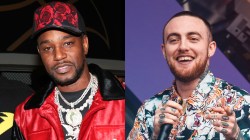
![Method Man Admits He Didn't Like Drake's "Wu-Tang Forever": "I [Wasn't] Getting On That"](https://hiphopdx.com/wp-content/uploads/2025/12/method-man-drake-wu-tang-forever-remix.jpg?w=250)
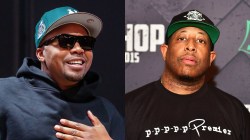
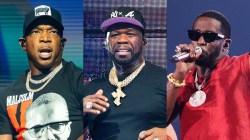
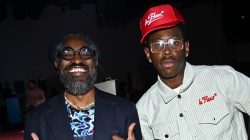

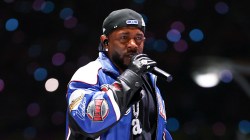
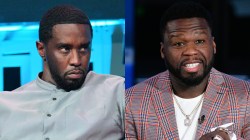
Busta isn’t wrong. Roc’s 2018 has solidified it. Dude is top 5 all time
Another classic from Marci
One of the best interviews I’ve read all year. Roc Marciano’s puttin’ in that work, and he deserves praise. Not a lot of people out there goin’ hard anymore, when it comes to that classic golden era sound.
Much appreciated.
Throw Back Music this is the best
Dope Interview. Great Questions. Roc is Showing Independent Artists How to Monetize The Movement and Make Great Music at the Same Time.
I want a Ghostface and Roc Marciano collab album! There I said it!